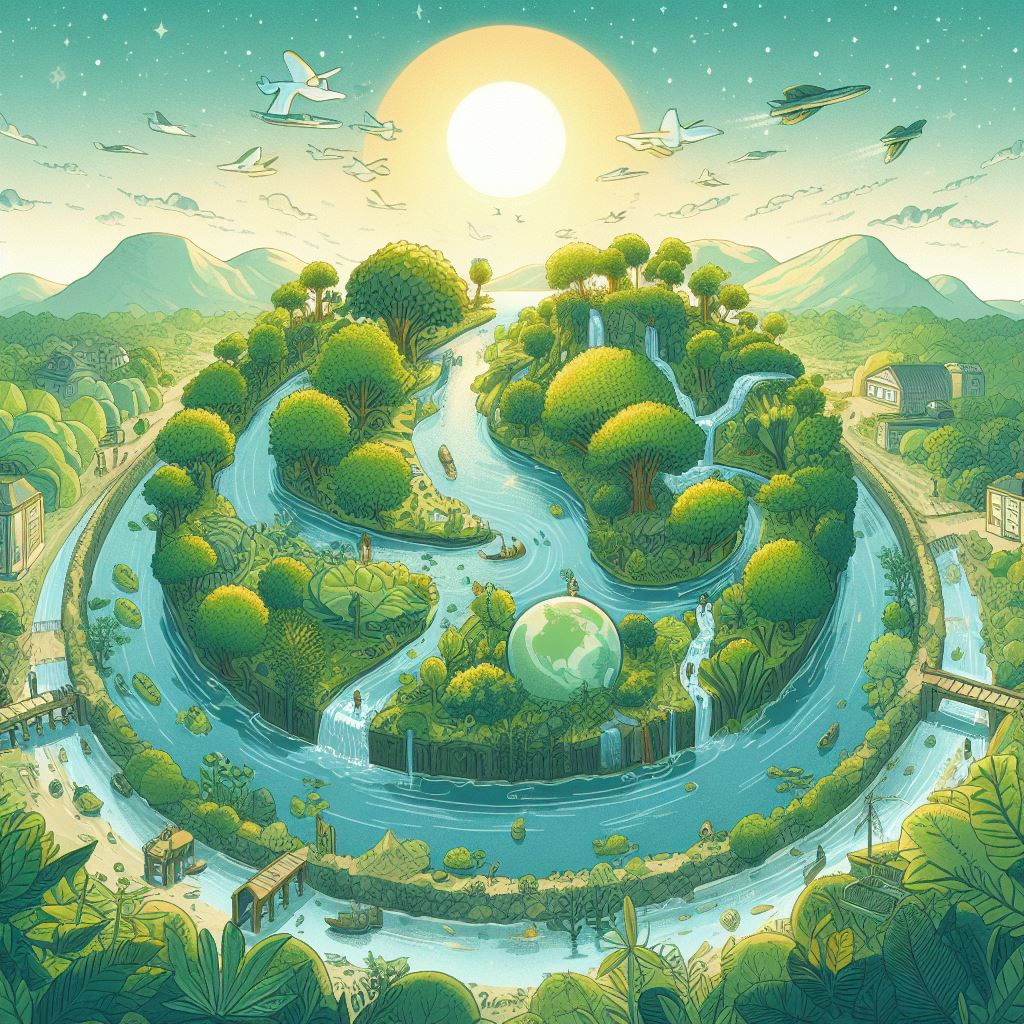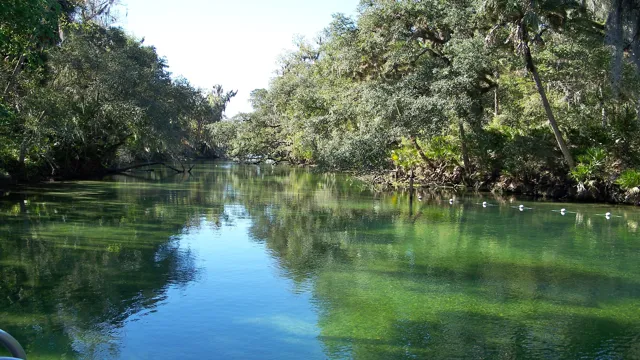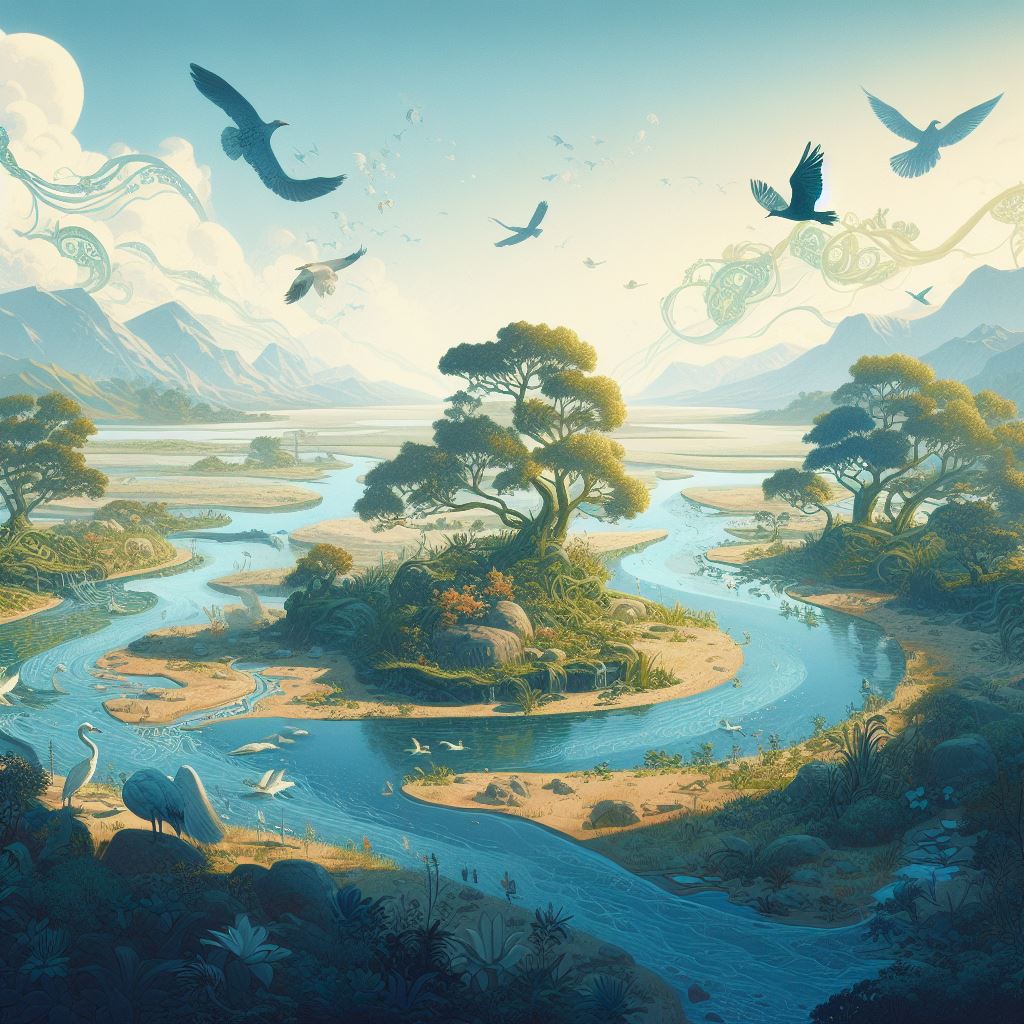Embarking on an environmental journey, we dive into the compelling world of unsung heroes – the Natural Waterway Protectors. In a world where water pollution is escalating, and natural habitats are under threat, these champions are a beacon of hope, tirelessly working to conserve our invaluable aquatic ecosystems. This blog post uncovers their inspiring stories, highlights their significant contributions, and explores the profound impact they have on preserving the health and biodiversity of our planet’s waterways.
Their dedication serves as a powerful reminder that every action counts in the fight against environmental degradation and inspires us to join in their meaningful cause. So, let’s delve into this fascinating journey of stewardship, where passion meets purpose, and every ripple creates a wave of change.
Understanding Waterways
The Guardians of the Natural Waterways: An Insightful Exploration As we embark on a journey to explore the vast ecosystems of our planet, we come across various elements that play significant roles in maintaining the ecological balance. Among these, the natural waterway protectors are some of the most vital yet often overlooked elements. They are the unsung heroes, diligently working to preserve the integrity of our waterways and playing an indispensable role in safeguarding aquatic ecosystems.

These natural waterway protectors are not just limited to living organisms like beavers building dams or oysters filtering and cleansing the water. They also encompass physical elements like vegetation along the riverbanks, which helps in preventing soil erosion, and wetlands, acting as natural sponges, soaking up pollutants and excess water. Understanding these protectors is not just about comprehending their roles in the ecosystem.
It also involves recognizing the threats they face due to human activities, climate change, and pollution. This knowledge is crucial in creating strategies to protect and preserve them, thus ensuring the continued health of our waterways. So, let’s dive deeper into the world of these guardians of our precious waterways, exploring their roles, understanding their challenges, and appreciating the delicate balance they help to maintain.
After all, the health of our planet’s waterways is inextricably linked to our well-being.
Defining Natural Waterways
“Natural waterways, the veins of our planet, are a crucial part of our ecosystem deserving of our protection. These are not just bodies of water but dynamic systems that sustain a diverse array of life forms, aid in nutrient cycling, and provide us with countless recreational opportunities. As natural waterway protectors, we are entrusted with the responsibility of maintaining their health and vitality.
We are the guardians of these aquatic lifelines, tasked with ensuring their survival for future generations. Our role is not just a duty, but an honor, a call to arms to protect these precious sources of life and joy.”

Importance of Waterways
Understanding the significance of waterways is crucial as they serve as natural waterway protectors. They function as essential ecosystems, supporting diverse aquatic life, facilitating nutrient exchange, and purifying water. Moreover, they act as natural flood control systems, preventing erosion and promoting groundwater recharge.
Additionally, waterways serve as recreational sites, contributing to local economies and enhancing the quality of life. Thus, preserving these invaluable resources is a pressing priority, crucial to maintaining ecological balance and ensuring sustainable development. The clever and remarkable design of nature to self-protect and sustain makes waterways an indispensable part of our planet.
The Role of Protectors
Section: The Crucial Mandate of Natural Waterway Protectors In the complex tapestry of our ecosystem, a crucial thread often overlooked is the role of natural waterway protectors. These unheralded heroes maintain the health and vibrancy of our planet’s arterial lifelines – our rivers, lakes, and oceans. Natural waterway protectors are not just individuals or groups committed to preserving our waterways.
They also encompass environmental regulations, conservation initiatives, and the natural flora and fauna that help maintain the delicate balance of these ecosystems. Their role is akin to that of a vigilant guardian, persistently working behind the scenes to ensure these bodies of water remain unpolluted and teeming with life. They are the invisible shield warding off the incessant barrage of human-induced pollution and degradation.
The tasks of these protectors are manifold – from routine clean-up drives to advocating for stringent environmental laws, from restoring damaged wetlands to educating the public about the importance of water conservation. They are the vanguards, ensuring our waterways continue to quench our thirst, nourish our crops, and provide a nurturing habitat for a myriad of species. In essence, natural waterway protectors are the unsung custodians of our planet’s future.
Their work is a testament to the resilience of nature and a reminder of our shared responsibility to protect and preserve our precious water resources. Without their relentless efforts, our natural waterways would be mere shadows of their current selves, devoid of the vitality and diversity that make them the lifeblood of our planet. So, let’s take a moment to appreciate these protectors for their unwavering dedication and pivotal role in safeguarding our waterways.
Who are Waterway Protectors?
Waterway Protectors are the unsung heroes of our environment, tirelessly working to safeguard our natural waterways. They are the stewards of our rivers, lakes, and oceans – the lifeblood of our planet. These are the scientists, conservationists, and everyday citizens who invest their time and effort into preserving and restoring these vital ecosystems.
They monitor water quality, combat pollution, and advocate for sustainable practices. Their work is crucial in maintaining the delicate balance of our planet’s water systems. Indeed, these natural waterway protectors are the environmental custodians, tirelessly ensuring the health and vitality of our waterways for generations to come.
Duties of Waterway Protectors
Waterway protectors, the unsung heroes of our natural waterways, play a crucial role in safeguarding these invaluable ecosystems. Their duties extend far beyond mere observation; they are environmental advocates, scientific researchers, and policy influencers. With a keen eye on the health of aquatic life, they monitor water quality, detect pollution sources, and implement restoration projects.
They are the sentinels against illegal fishing and dumping activities, ensuring the pristine condition of our waterways. These natural waterway protectors are indeed the lifeline for our water bodies, preserving their vitality for generations to come.
Impact of Protectors’ Work
“The Impactful Undertakings of Natural Waterway Protectors” Natural waterway protectors, the unsung heroes of our environment, play an indispensable role in conserving our planet’s aquatic ecosystems. Their tireless efforts not only ensure the health and longevity of our rivers, lakes, and oceans but also safeguard the countless species that rely on these waterways for survival. Their work, though often behind the scenes, has profound implications for biodiversity, climate change, and human health.
Truly, these guardians of our waterways act as the vital lifeblood of our planet, subtly yet significantly influencing the balance of life on Earth. Their work, undeniably, leaves ripples that reach far beyond the water’s edge.
Conservation Efforts
Section Title: Natural Waterway Protectors: The Unsung Heroes of Conservation Efforts Nature’s intricate patterns often hold the key to some of our most pressing environmental challenges. Among these, natural waterway protectors stand as silent guardians, playing a pivotal role in maintaining the health of our ecosystems. These protectors, ranging from mangroves and wetlands to coral reefs, are often underrated despite their immense contribution to environmental conservation.
Mangroves, for instance, act like nature’s kidneys, filtering pollutants and preventing them from entering our oceans. Wetlands, on the other hand, function as natural sponges, absorbing excess water during heavy rains, hence mitigating the impact of floods. Coral reefs, the rainforests of the sea, are biodiversity hotspots that play a crucial role in marine life sustenance.
However, these natural waterway protectors are under constant threat from human activities, making their conservation a matter of utmost urgency. By preserving these ecosystems, we not only secure a future for countless species but also ensure a healthier and more sustainable world for ourselves. Engaging in this battle for conservation might seem like a Herculean task, but in reality, every little effort counts.
This could be as simple as supporting local conservation initiatives or as significant as influencing policy changes on a broader scale. The time to act is now. After all, nature doesn’t need us; we need nature.
Protection Strategies
In our quest for sustainable environmental stewardship, natural waterway protectors emerge as unsung heroes. These are naturally occurring elements such as wetlands, mangroves, and coral reefs that act as bulwarks against water pollution, flooding, and soil erosion. Their ability to purify water, absorb excess nutrients, and provide habitats for various species makes them indispensable in maintaining the delicate balance of our ecosystems.
Unveiling the intricate interplay between these natural protectors and their surroundings, we gain a renewed understanding of how nature ingeniously safeguards her resources while offering us valuable lessons in environmental protection strategies.
Success Stories
In this section, we present an inspiring collection of success stories from natural waterway protectors across the globe. These environmental heroes have harnessed innovative methods to protect and rejuvenate our planet’s lifelines. From restoring ancient irrigation systems to using cutting-edge technology, these stories highlight the power and potential of human resilience and creativity in the face of environmental challenges.
These narratives are not only heartening but also serve as a reminder of our shared responsibility and potential to become custodians of our water bodies. Dive in to get inspired and perhaps find a blueprint for your eco-mission.
Getting Involved
Diving Into Action as Natural Waterway Protectors There is a ripple of excitement that comes from becoming a steward of our planet’s most precious resource, water. As natural waterway protectors, we are not simply passive bystanders watching the ebb and flow of the environment’s health; we are the active defenders and guardians of our world’s aquatic systems. Waterways are the lifeblood of our planet, facilitating biodiversity, influencing climate, and providing sustenance and livelihood to billions.
However, these vital ecosystems are under unprecedented threats from pollution, overfishing, and climate change. The need for their preservation is not just a matter of environmental responsibility; it’s a matter of global survival. Involvement in waterway protection can take many forms.
From participating in local clean-up drives to advocating for policies that safeguard our rivers and oceans, each action carries a ripple effect towards a healthier planet. It’s about immersing ourselves in the cause, understanding the intricate balance of aquatic ecosystems, and making waves in our communities to inspire collective action. In the grand tapestry of environmental conservation, natural waterway protectors are the threads that weave together a future where both humanity and nature thrive.
As we navigate the currents of this crucial endeavor, we are not just making a splash. We are creating ripples of change that could help save our waterways and, ultimately, our planet.
How to Become a Protector
Embarking on the journey to become a natural waterway protector is a noble pursuit that requires commitment, dedication, and a deep appreciation for our environment. This role entails safeguarding our precious aquatic ecosystems from pollution, degradation, and other harmful human activities. For those keen to join the ranks of these environmental stewards, this requires equipping oneself with knowledge about local waterways, understanding the unique challenges they face, and developing effective strategies to combat these issues.
Remember, every drop in the ocean counts, and your efforts can significantly contribute to preserving these vital lifelines for future generations.
Supporting Waterway Protectors
In the pursuit of safeguarding our precious natural waterways, the role of natural waterway protectors is paramount. These unsung heroes, armed with a passion for environmental conservation, devote their efforts to maintaining the pristine state of our rivers, lakes, and oceans. Their work ranges from promoting sustainable water use and advocating for stringent pollution regulations to spearheading clean-up drives.
By supporting these protectors, we contribute to preserving these water bodies, fostering biodiversity, and ensuring a healthier planet for future generations. After all, every drop of effort counts in the vast ocean of environmental protection!
Frequently Asked Questions
Who are considered natural waterway protectors?
Natural waterway protectors are typically environmental agencies, groups, or individuals who aim to preserve, restore, and maintain the health of rivers, streams, and other bodies of water. They can also include certain species of plants and animals that contribute to the upkeep of these ecosystems.
What role do natural waterway protectors play in the environment?
Natural waterway protectors play a crucial role in maintaining the balance of the ecosystem. They ensure the cleanliness of the waterways, protect the habitats of various aquatic species, and help in the reduction of pollution. They also educate the public about the importance of water conservation.
How can we contribute to being natural waterway protectors?
Individuals can contribute as natural waterway protectors by minimizing pollution, properly disposing of waste, participating in local clean-up drives, and supporting policies that protect waterways. Educating oneself and others about the importance of water conservation is also a significant contribution.
Why is the work of natural waterway protectors important?
The work of natural waterway protectors is important because waterways are vital to all life forms. They provide habitat, food, and water for various species, including humans. They also play a significant role in nutrient cycling and climate regulation. Without natural waterway protectors, these important ecosystems could be seriously damaged or destroyed.
Can natural waterway protectors help prevent flooding?
Yes, natural waterway protectors can help prevent flooding. By maintaining the health and flow of waterways, they can help manage water levels and prevent overflow. This includes removing blockages and promoting the growth of plants that can absorb excess water.
Conclusion
Our natural waterways are not just aesthetic wonders; they are the lifeblood of our environment, supporting a diverse range of ecosystems and maintaining the balance of nature. They are the unsung heroes, quietly going about their crucial work while largely unnoticed. They are like nature’s secret agents, protecting us and our planet in ways we often take for granted.So, let’s celebrate these natural waterway protectors, our watery superheroes, who continue to serve and protect, one ripple at a time.

Leave a Reply